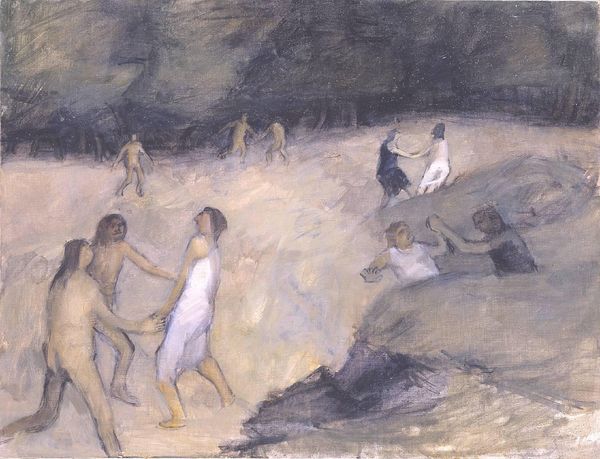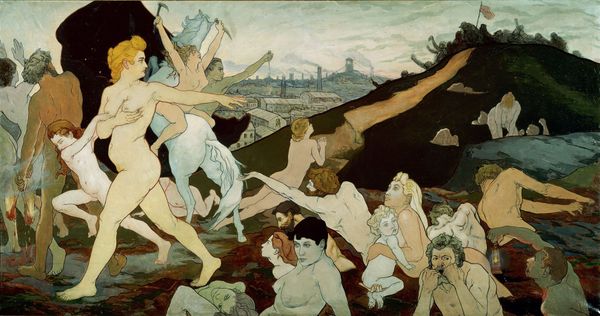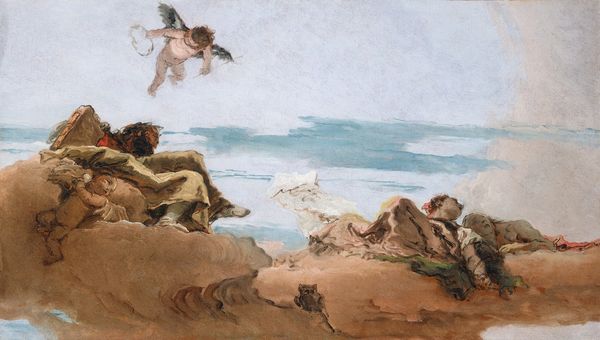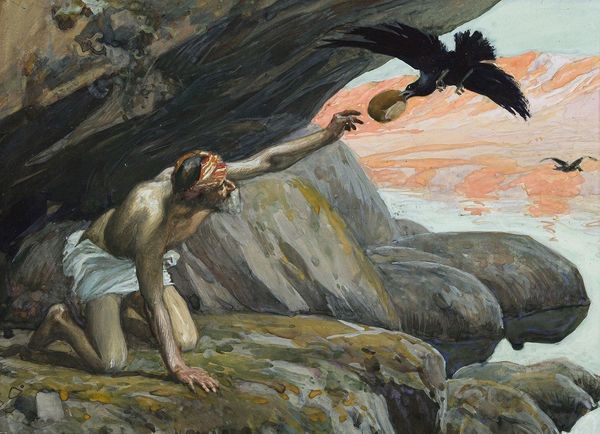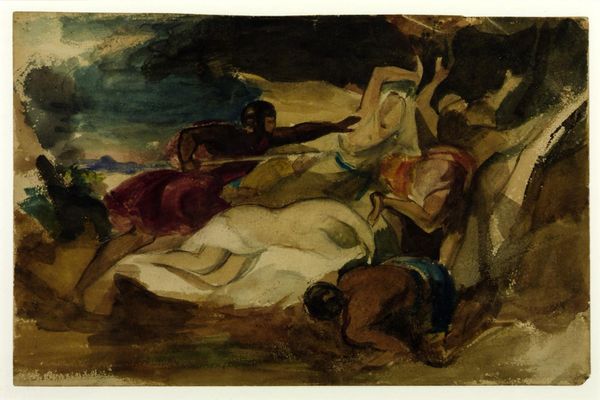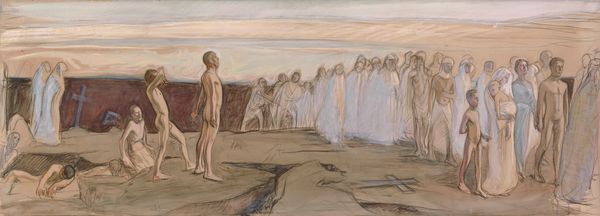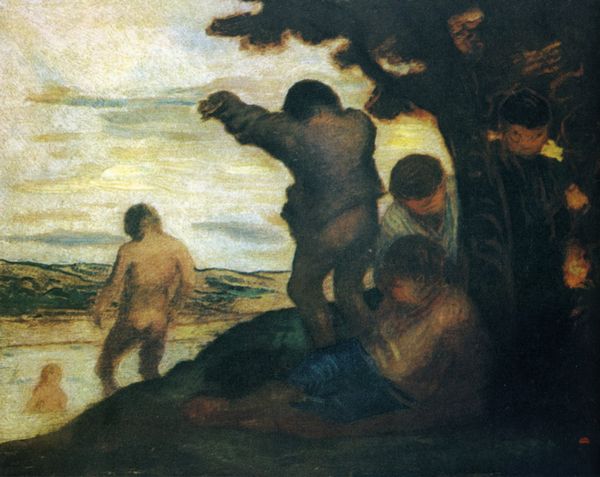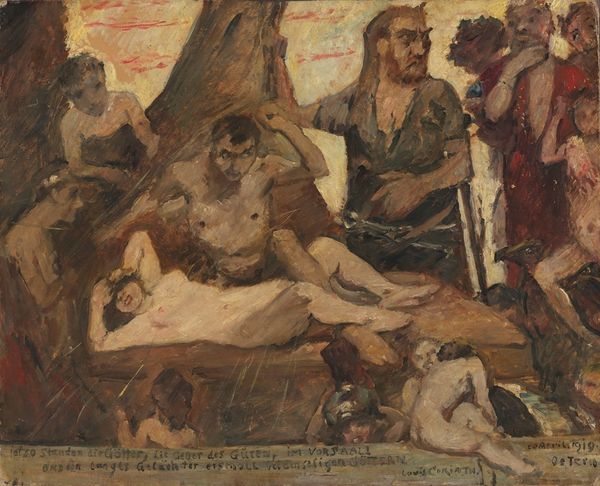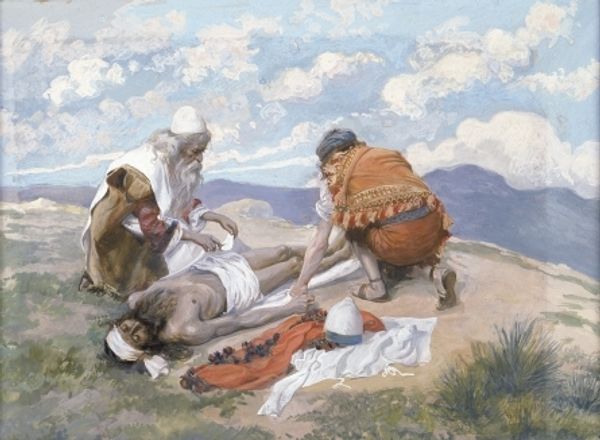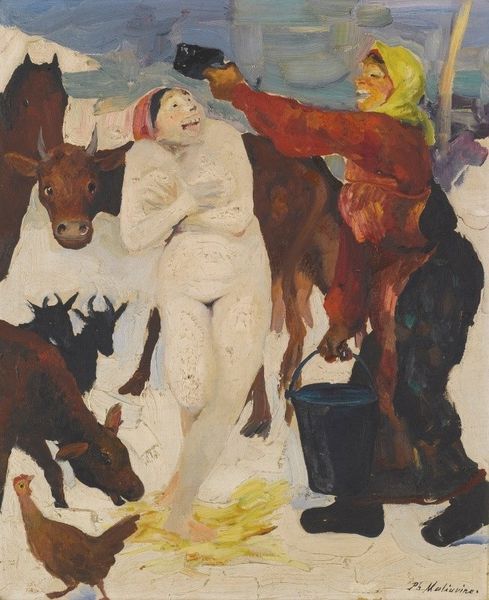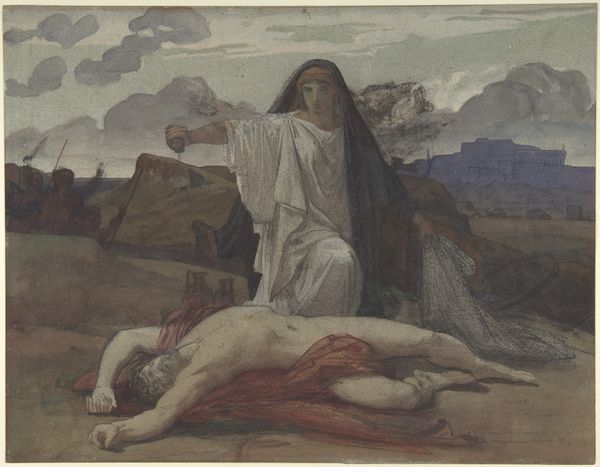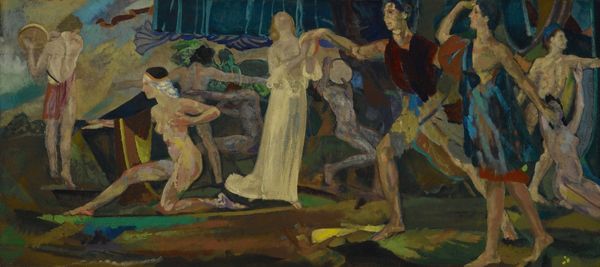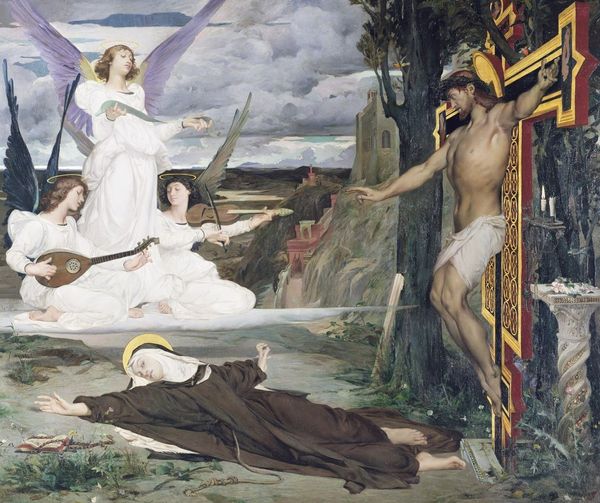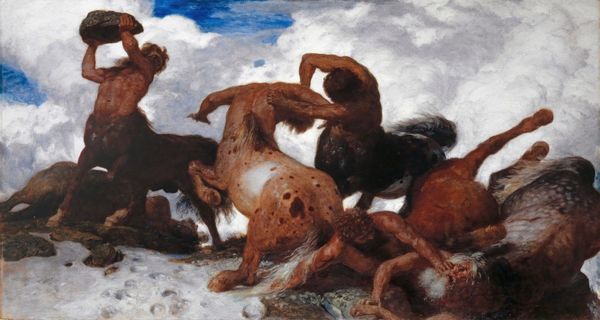
Dimensions: support: 749 x 1161 x 25 mm
Copyright: CC-BY-NC-ND 4.0 DEED, Photo: Tate
Editor: This is Glyn Warren Philpot's "Repose on the Flight into Egypt," currently at the Tate. It's a large painting, and the figures feel almost sculptural. What can you tell me about it? Curator: Notice how Philpot contrasts the traditional religious subject matter with unconventional figures and a surreal landscape. This challenges our expectations. How does the materiality of paint itself, applied in broad strokes, contribute to this effect, distancing it from the preciousness often associated with religious art? Editor: I see what you mean. It does feel very grounded, less ethereal. Curator: Exactly. And consider the social context: Philpot painted this during a period of significant social upheaval. How might the painting's ambiguous narrative reflect anxieties about tradition and modernity? Editor: So, it's not just about the biblical story, but also about Philpot's world. That's fascinating! Curator: Precisely. It invites us to think about the production of meaning itself.
Comments
tatebritain 10 months ago
⋮
http://www.tate.org.uk/art/artworks/philpot-repose-on-the-flight-into-egypt-t11861
Join the conversation
Join millions of artists and users on Artera today and experience the ultimate creative platform.
tatebritain 10 months ago
⋮
Glyn Philpot brings an unusual interpretation to the subject of the Holy Family resting on the flight into Egypt by incorporating mythological figures including a sphinx, a satyr and three centaurs. Philpot’s presentation of the mythological creatures alludes to pagan myths of unrestrained sexuality, and the implication is that this will be replaced by the new religion of Christianity. The Holy Family are seen sheltering against a huge sculpture from a ruined building, fragments of which appear in the background. This dream-like work has been interpreted as an attempt by Philpot to reconcile his adopted Catholicism and his sexual attraction to other men. Gallery label, March 2018
